GUEST POST by ELIZABETH LEONARD
Did you know that at present approximately 140 million (!!) Americans live in poverty or one $400 crisis away from slipping into the financial abyss?
In Waterville, Maine, where I have lived and worked for thirty years, I have been a local organizer with the Poor People’s Campaign: A National Call for Moral Revival (PPC) since 2018, trying to do what I can to address the growing poverty rate.
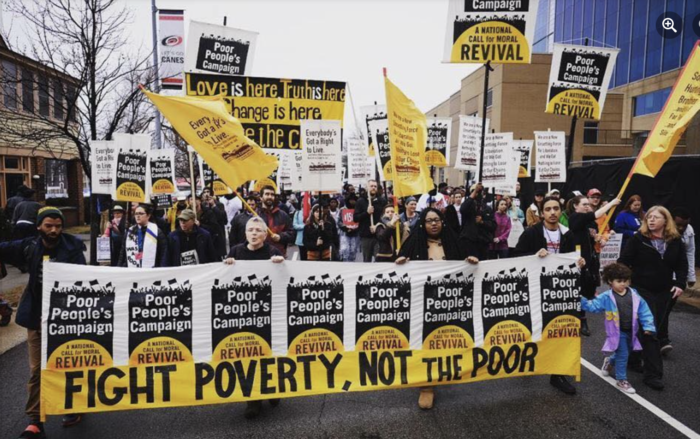
A recent Poor People’s Campaign march in Kentucky (Steve Pavey)
Wanting to do more, last spring a friend from the Kennebec Valley Community Action Program and I began organizing a weekly “giveaway table” outside our town’s Goodwill store, where our poorest community members routinely pass through or gather.
With donations from friends and our own resources, we offered essential items (cleaning/hygiene supplies, toilet paper and other paper goods, hand and foot warmers, new socks, etc.) to anyone who needed them, no charge, no questions asked.
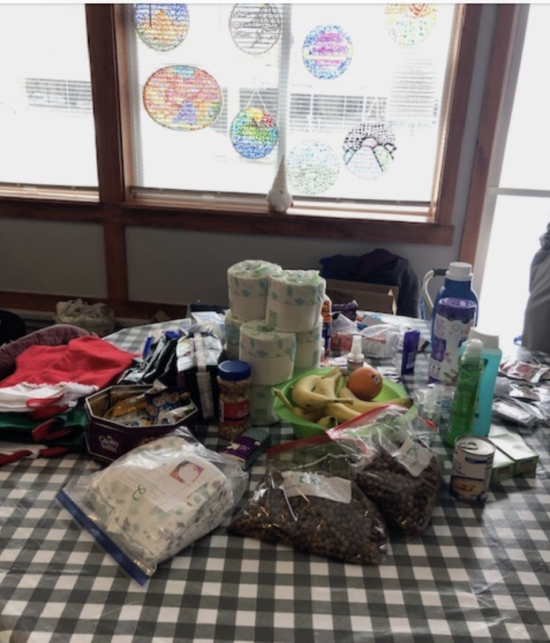
A “giveaway table,” the author helped to organize
Importantly, we also began connecting personally with impoverished community members, hearing their stories, learning about their struggles, getting to know them by name. In the fall we moved to the warm shelter of The Lighthouse, our local soup kitchen where every Friday we continue to provide some direct relief to folks whose suffering mirrors what so many across the nation are experiencing. We still depend entirely on donations and our own resources.
At our giveaway table it often feels like we are just slapping tiny band aids on patients who are bleeding out–on a society that is bleeding out—right before our eyes. It’s hardly enough, but it definitely feels better than doing nothing, the easier path for those of us who are economically comfortable.
Meanwhile, our small town’s soup kitchen is currently serving 250 meals a day (over a 90-minute lunch period) to people making desperate choices between food and rent, food and medicine, food and toilet paper.
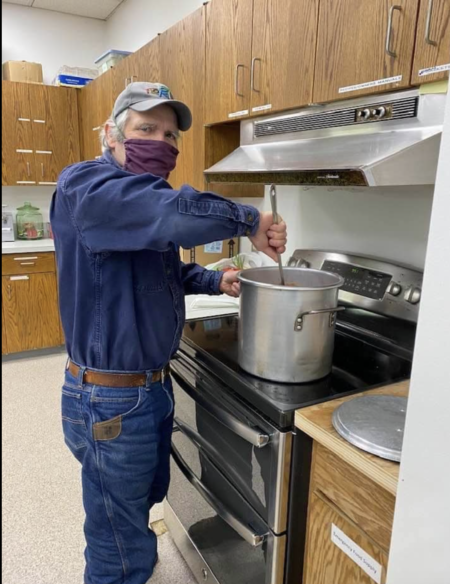
A volunteer at The Lighthouse soup kitchen
These choices become even more difficult when compounded with mental illness and the various addictions driven by destitution, and for which decent medical care is typically out of reach.
To grasp the national scope of this catastrophe, I highly recommend Matthew Desmond’s brilliant new book, Poverty, By America. It’s way past time for us all to “come to Jesus” (as some of my Christian friends would say) about poverty itself and about the roles we all play in perpetuating such unnecessary cruelty in the wealthiest nation in the history of the world!
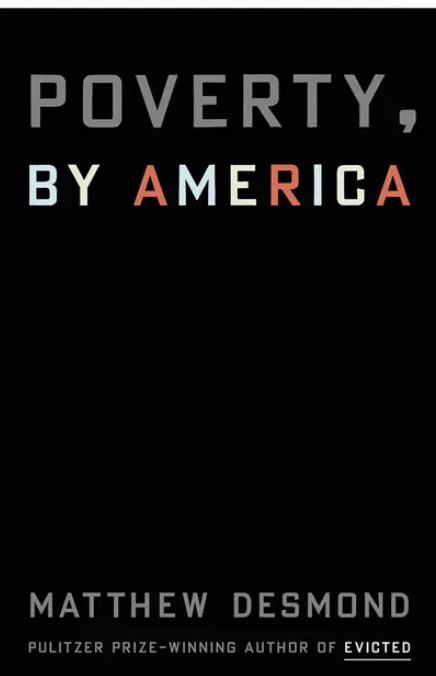
Desmond’s book offers many stunning revelations. Did you know that far more government welfare goes to the rich than to the poor, only we disguise it as “tax breaks” instead of using terms that imply handouts, like “food stamps”?
Did you know that it’s not even necessary (though it might still be a good idea) to raise taxes on the super-rich and corporations? That we “could effectively end poverty in America tomorrow without increasing the deficit if the IRS simply cracked down on corporations and families who cheat on their taxes, reallocating the newfound revenue to those most in need of it”?
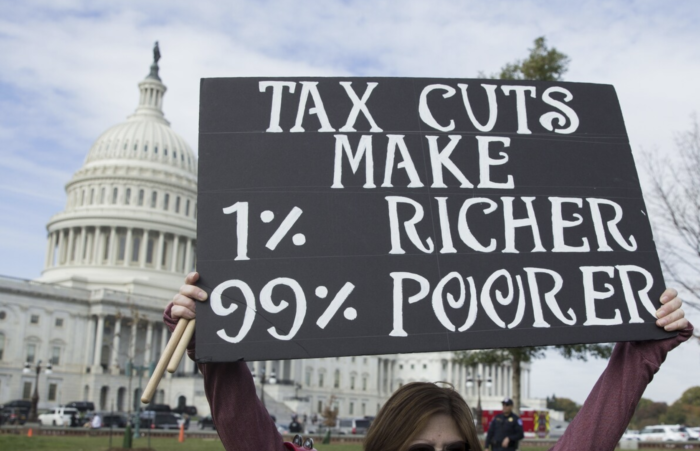
None of us—including me—is doing enough to fix what is broken; all of us can do more. Happily, Desmond offers insights and challenges, and also tangible suggestions for what we can do.
We could become what Desmond calls “Poverty Abolitionists.”
We could, for example, insist on purchasing goods and services produced only by unionized labor. We could welcome affordable housing into our neighborhoods. We could get to know our poorest community members by name and build relationships with them. We could insist that our children attend schools where children representing the full spectrum of economic opportunity and despair are also in attendance.
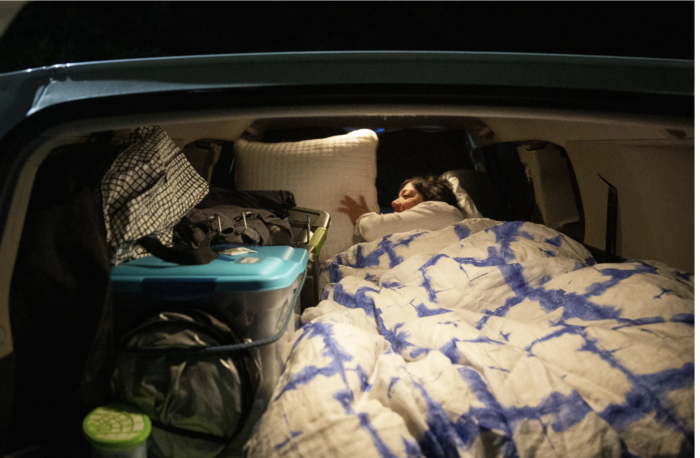
A woman forced to live in her car due to the lack of affordable housing
It won’t be easy, but if all of us do something, and then something more, it is possible. Please, read Desmond’s compelling book and take his guidance into your heart and soul. Allow yourself to imagine a better and beautiful future for everyone, and then get to work!!
To donate to the author’s giveaway table please reach out directly to her at edleonar@colby.edu.
To listen to a recent interview with Matthew Desmond: https://www.democracynow.org/2023/4/18/matthew_desmond_poverty_book
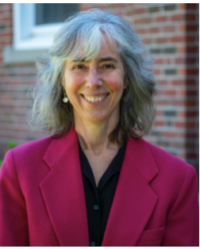 Elizabeth D. Leonard, Colby College’s Gibson Professor of History, Emerita, earned her Ph.D. in U.S. history from the University of California, Riverside. She is the author of several articles and seven books on the Civil War-era including Lincoln’s Forgotten Ally: Judge Advocate General Joseph Holt of Kentucky, which was named co-winner of the Gilder Lehrman Lincoln Prize in 2012. Her most recent book, Benjamin Franklin Butler: A Noisy, Fearless Life, was named a finalist for the 2023 Lincoln Prize and won the 2023 book prize from the John L. Nau III Center for Civil War Studies at the University of Virginia.
Elizabeth D. Leonard, Colby College’s Gibson Professor of History, Emerita, earned her Ph.D. in U.S. history from the University of California, Riverside. She is the author of several articles and seven books on the Civil War-era including Lincoln’s Forgotten Ally: Judge Advocate General Joseph Holt of Kentucky, which was named co-winner of the Gilder Lehrman Lincoln Prize in 2012. Her most recent book, Benjamin Franklin Butler: A Noisy, Fearless Life, was named a finalist for the 2023 Lincoln Prize and won the 2023 book prize from the John L. Nau III Center for Civil War Studies at the University of Virginia.
 Elizabeth D. Leonard, Colby College’s Gibson Professor of History, Emerita, earned her Ph.D. in U.S. history from the University of California, Riverside. She is the author of several articles and seven books on the Civil War-era including Lincoln’s Forgotten Ally: Judge Advocate General Joseph Holt of Kentucky, which was named co-winner of the Gilder Lehrman Lincoln Prize in 2012. Her most recent book, Benjamin Franklin Butler: A Noisy, Fearless Life, was named a finalist for the 2023 Lincoln Prize and won the 2023 book prize from the John L. Nau III Center for Civil War Studies at the University of Virginia.
Elizabeth D. Leonard, Colby College’s Gibson Professor of History, Emerita, earned her Ph.D. in U.S. history from the University of California, Riverside. She is the author of several articles and seven books on the Civil War-era including Lincoln’s Forgotten Ally: Judge Advocate General Joseph Holt of Kentucky, which was named co-winner of the Gilder Lehrman Lincoln Prize in 2012. Her most recent book, Benjamin Franklin Butler: A Noisy, Fearless Life, was named a finalist for the 2023 Lincoln Prize and won the 2023 book prize from the John L. Nau III Center for Civil War Studies at the University of Virginia.




